Philip Holsinger
REPORTING FROM SAN LUIS TALPA, EL SALVADOR
Holsinger is an American photojournalist based out of Nashville, Tenn.
On the night of Saturday, March 15, three planes touched down in El Salvador, carrying 261 men deported from the United States. A few dozen were Salvadoran, but most of the men were Venezuelans the Trump Administration had designated as gang members and deported, with little or no due process. I was there to document their arrival.
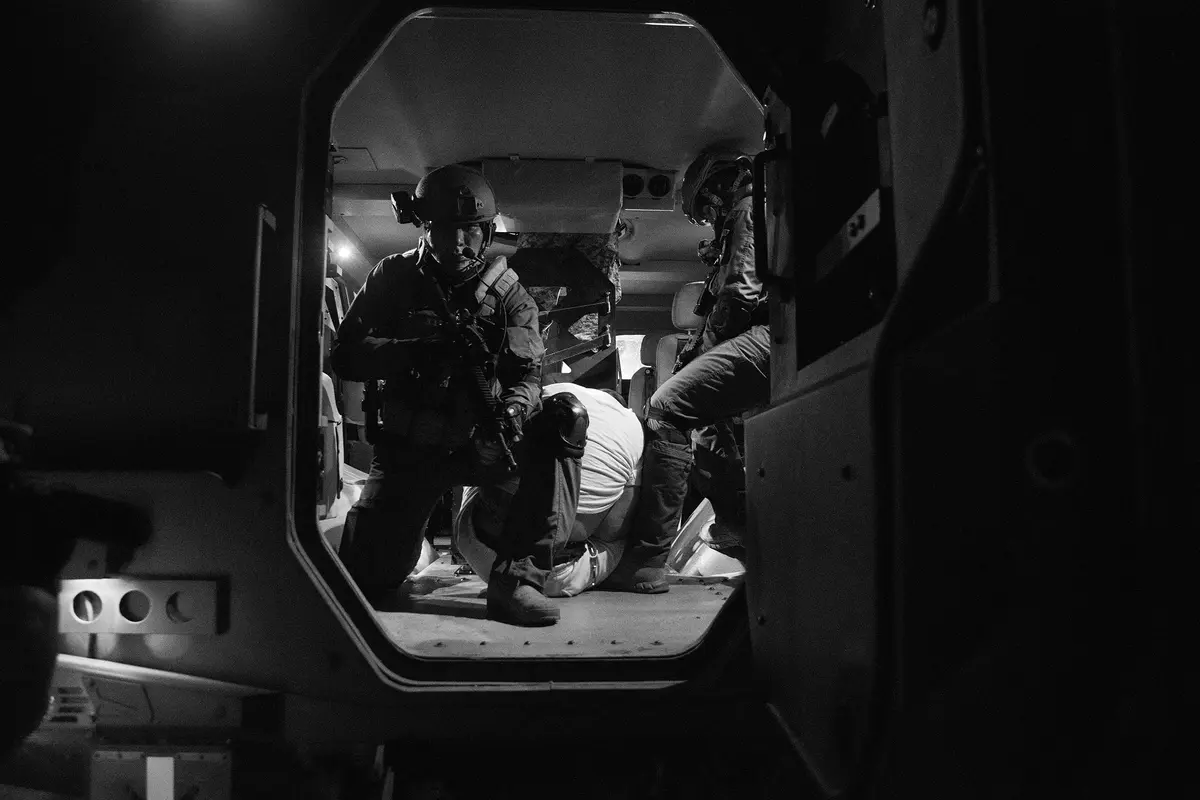
For more than a year, I have been embedded throughout El Salvador’s society, working on a book chronicling the country’s transformation. From the huts of remote island fishermen to the desk of the President, from elite homicide detective units to elementary school classrooms, I have interviewed government officials and everyday people, collecting stories that would shock Stephen King. I’ve stood in classrooms full of happy students which not long ago were empty, because children here once learned early that schools were places to be raped or recruited. I’ve interviewed killers in prison and sat with them face-to-face.
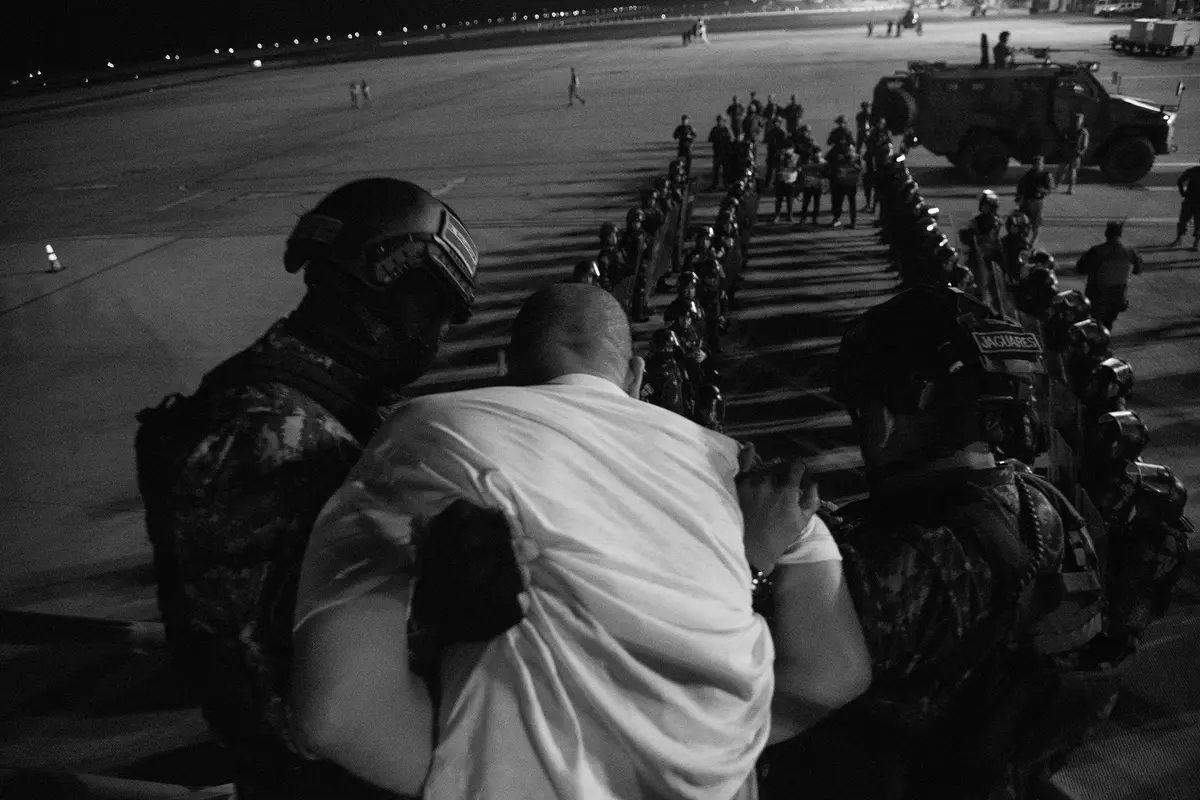
As I stood on the tarmac, an agent with the U.S. Department of Homeland Security's ICE Special Response Team told me that some of the Venezuelans had weakly attempted to take over their plane upon landing. It wasn’t unusual for detainees to try to make a last stand, the agent said, guarding the doorway to the plane at the top of the gangway stairs. “They began to try to organize to overthrow the plane by screaming for everyone to stand up and fight. But not everyone was on board,” the agent said, cautioning me to be careful because some of the Venezuelans would fight once they were offloaded.
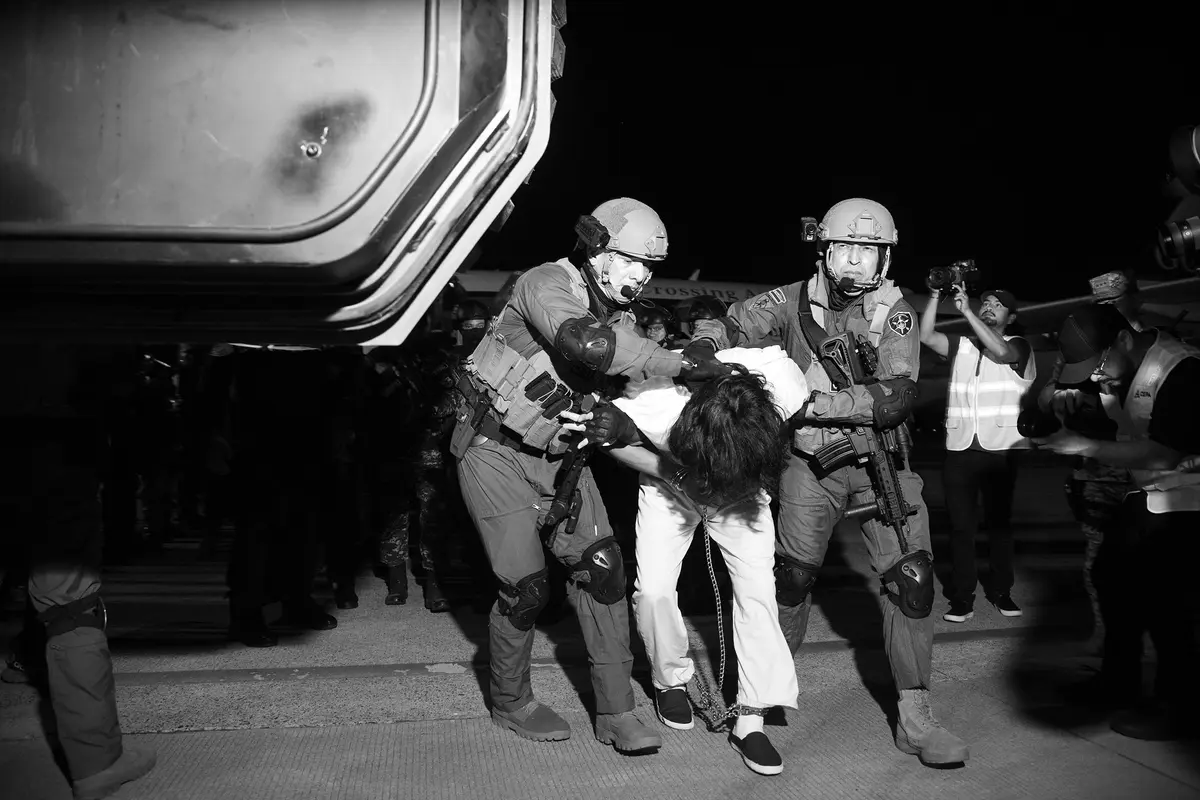
Even if not fighting, almost all the detainees came to the door of the plane with angry, defiant faces. It was their faces that grabbed me, because within a few hours those faces would completely transform.
The Venezuelans emerging from their plane were not in prison clothes, but in designer jeans and branded tracksuits. Their faces were the faces of guys who in no way expected what they first saw—an ocean of soldiers and police, an entire army assembled to apprehend them.
One of the alleged organizers of the attempted overthrow fought the U.S. agents on the plane, cursing the Americans, the Salvadorans, President Nayib Bukele himself. El Salvador’s Minister of Defense, René Merino, who had been standing on the tarmac at the bottom of the gangway, rushed aboard, dragged the guy to the gangway himself, and flung him into the waiting hands of black-masked guards.
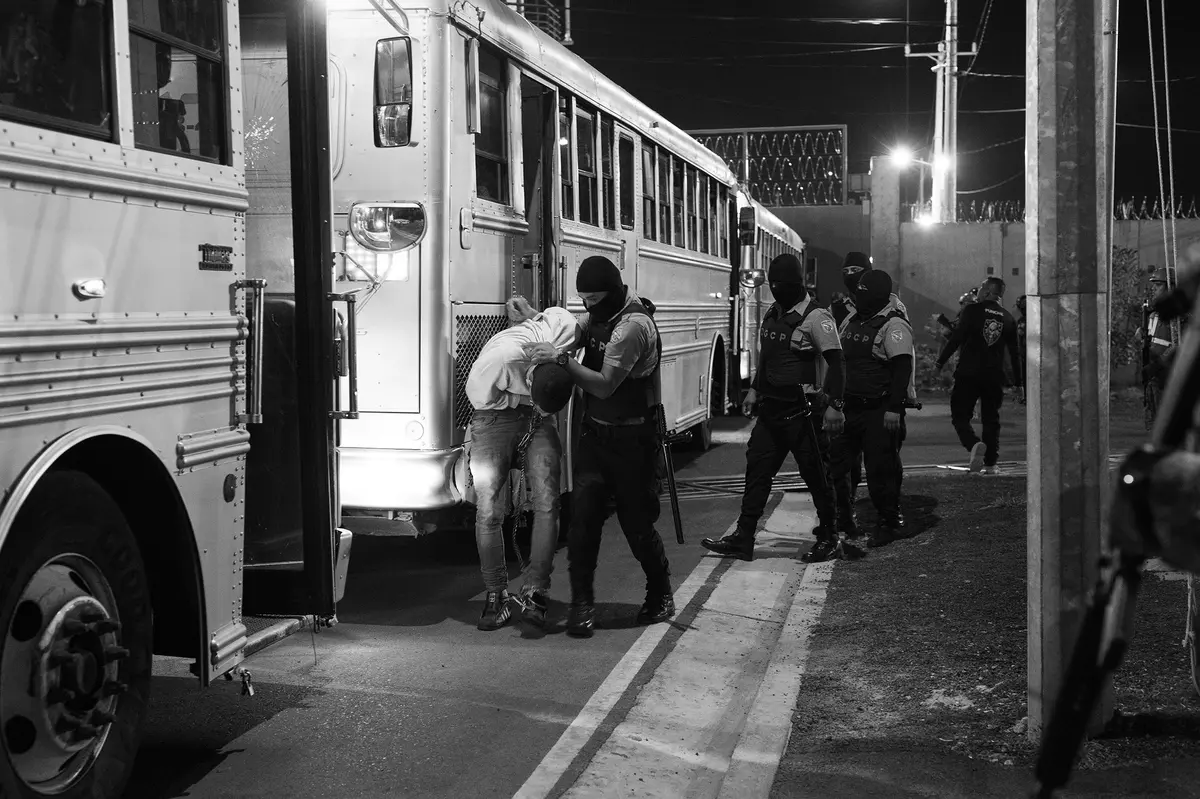
The transfer from the plane to the buses that would carry them to prison was rapid, yet it might as well have been the crossing of an ancient continent. I felt the detainees’ fear as they marched through a gauntlet of black-clad guards, guns raised like the spears of some terrible tribe. I walked the line of buses waiting to depart, photographing faces. A guard noticed one of the detainees turned toward the window and wrenched his head back down into his chest.
Around 2 a.m., the convoy of 22 buses, flanked by armored vehicles and police, moved out of the airport. Soldiers and police lined the 25-mile route to the prison, with thick patrols at every bridge and intersection. For the few Salvadorans, it was a familiar landscape. But for a Venezuelan plucked from America, it must have appeared dystopian—police and soldiers for miles and miles in woodland darkness.
The Terrorism Confinement Center, a notorious maximum-security prison known as CECOT, sits in an old farm field at the foot of an ancient volcano, brightly lit against the night sky. I’ve spent considerable time there and know the place intimately. As we entered the intake yard, the head of prisons was giving orders to an assembly of hundreds of guards. He told them the Venezuelans had tried to overthrow their plane, so the guards must be extremely vigilant. He told them plainly: Show them they are not in control.
The intake began with slaps. One young man sobbed when a guard pushed him to the floor. He said, “I’m not a gang member. I’m gay. I’m a barber.” I believed him. But maybe it’s only because he didn’t look like what I had expected—he wasn’t a tattooed monster.
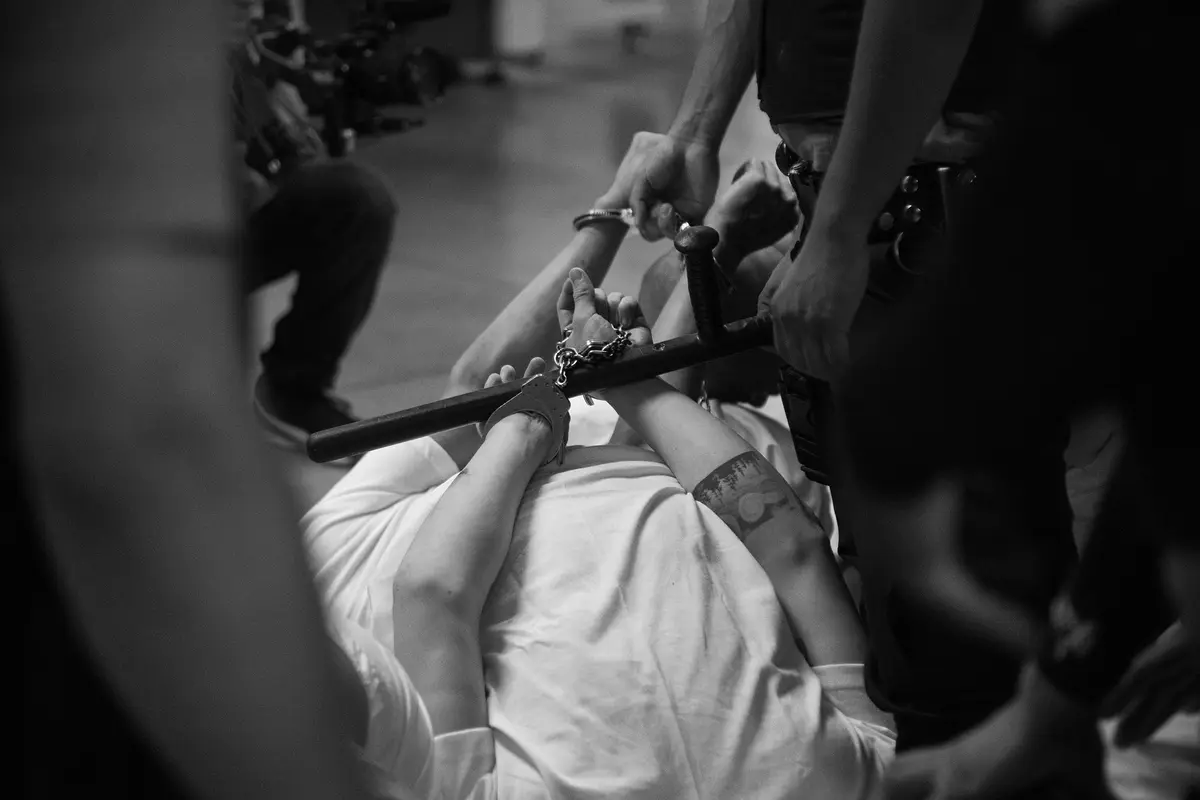
The men were pulled from the buses so fast the guards couldn’t keep pace. Chained at their ankles and wrists, they stumbled and fell, some guards falling to the ground with them. With each fall came a kick, a slap, a shove. The guards grabbed necks and pushed bodies into the sides of the buses as they forced the detainees forward. There was no blood, but the violence had rhythm, like a theater of fear.
Inside the intake room, a sea of trustees descended on the men with electric shavers, stripping heads of hair with haste. The guy who claimed to be a barber began to whimper, folding his hands in prayer as his hair fell. He was slapped. The man asked for his mother, then buried his face in his chained hands and cried as he was slapped again.

After being shaved, the detainees were stripped naked. More of them began to whimper; the hard faces I saw on the plane had evaporated. It was like looking at men who passed through a time machine. In two hours, they aged 10 years. Their nice clothes were not gathered or catalogued but simply thrust into black garbage bags to be thrown out with their hair.
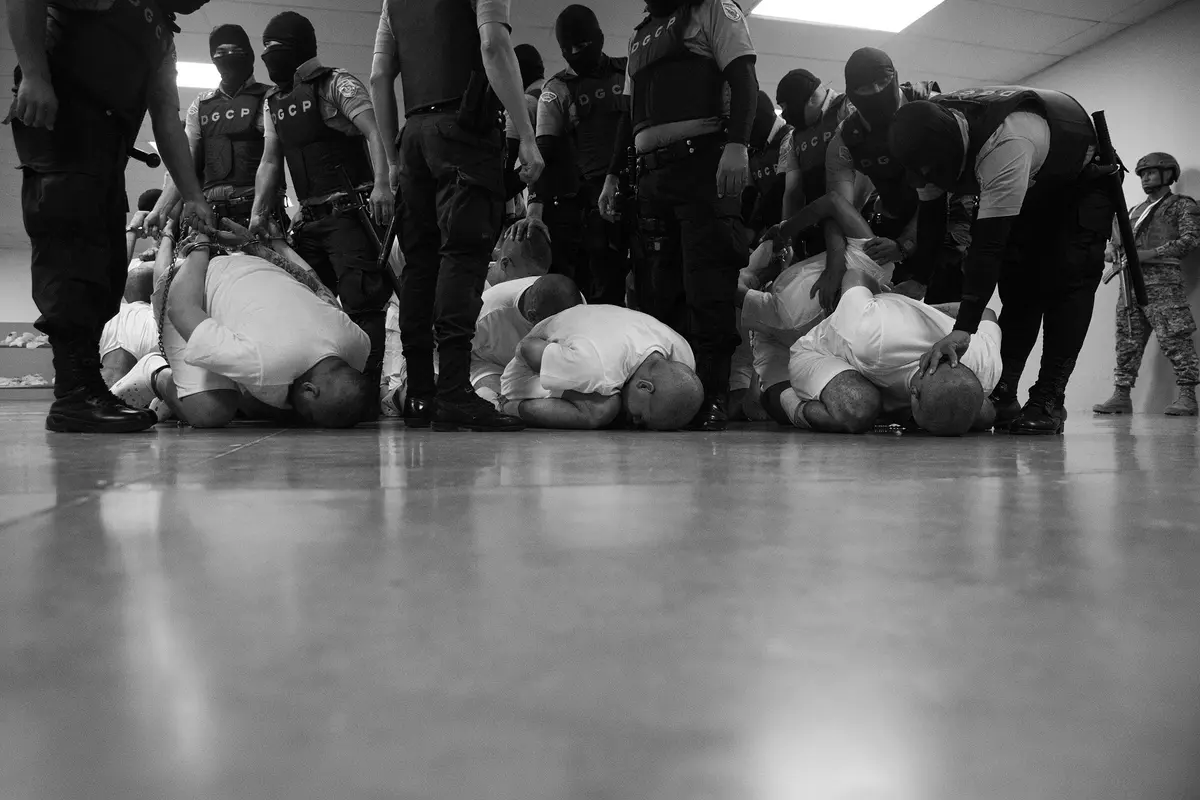
They entered their cold cells, 80 men per cell, with steel planks for bunks, no mats, no sheets, no pillow. No television. No books. No talking. No phone calls and no visitors. For these Venezuelans, it was not just a prison they had arrived at. It was exile to another world, a place so cold and far from home they may as well have been sent into space, nameless and forgotten. Holding my camera, it was as if I watched them become ghosts.

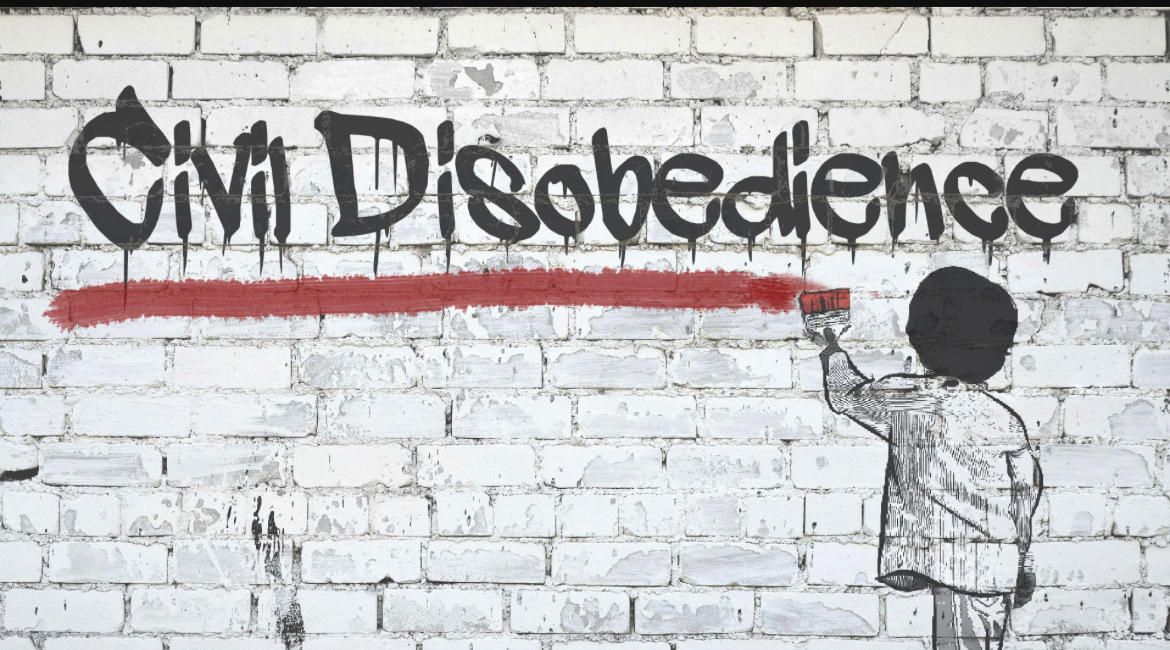






 ^___^
^___^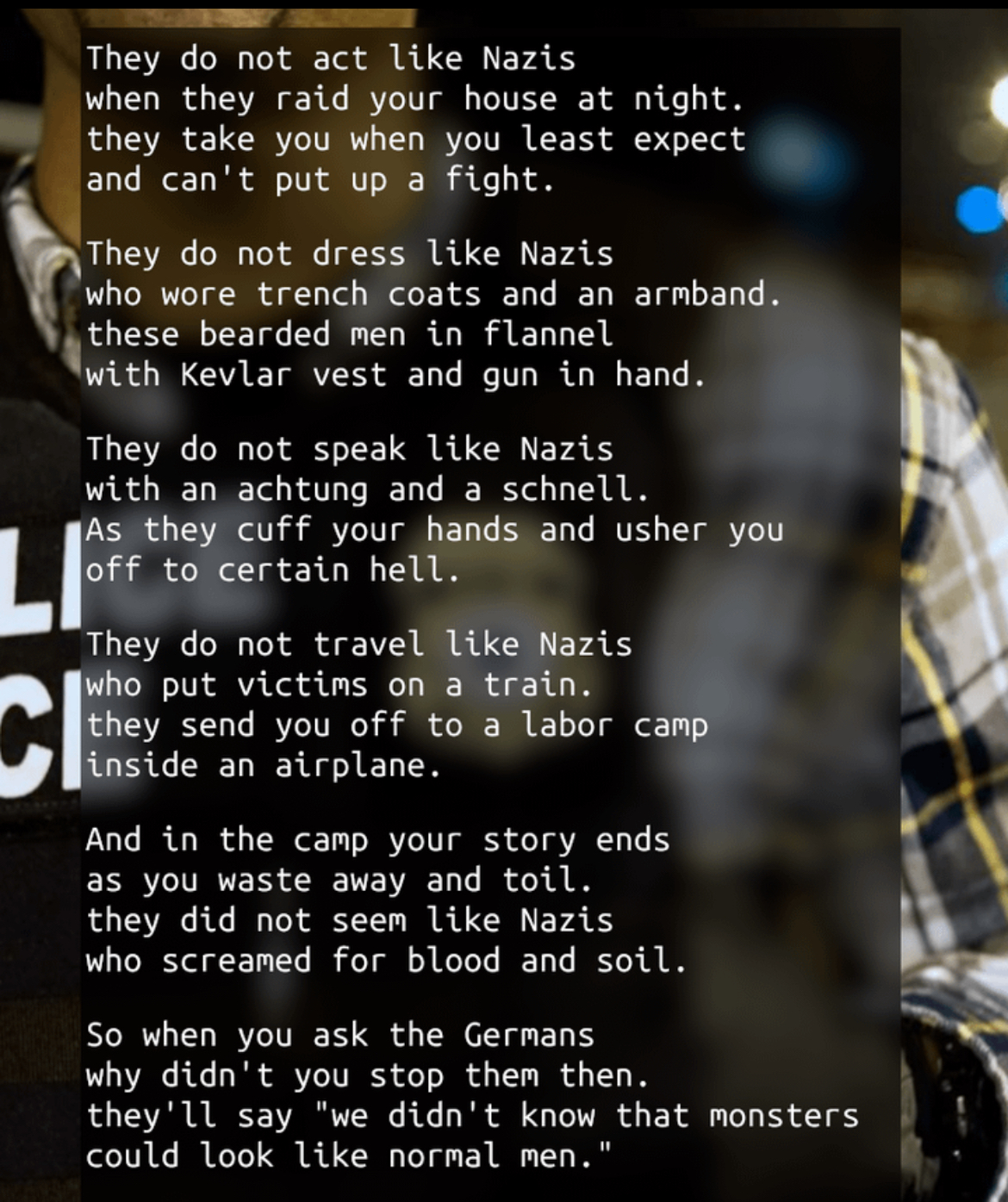
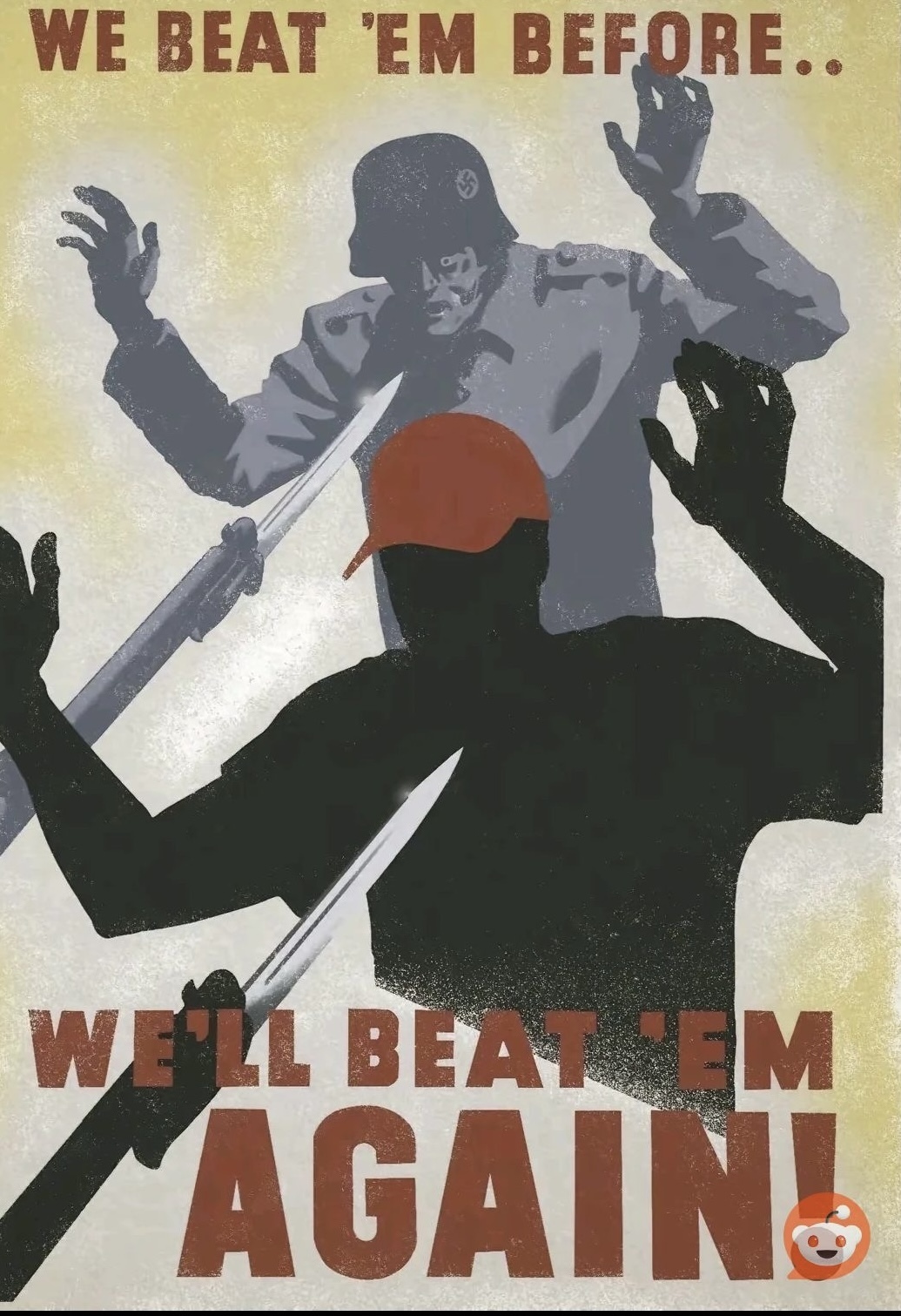

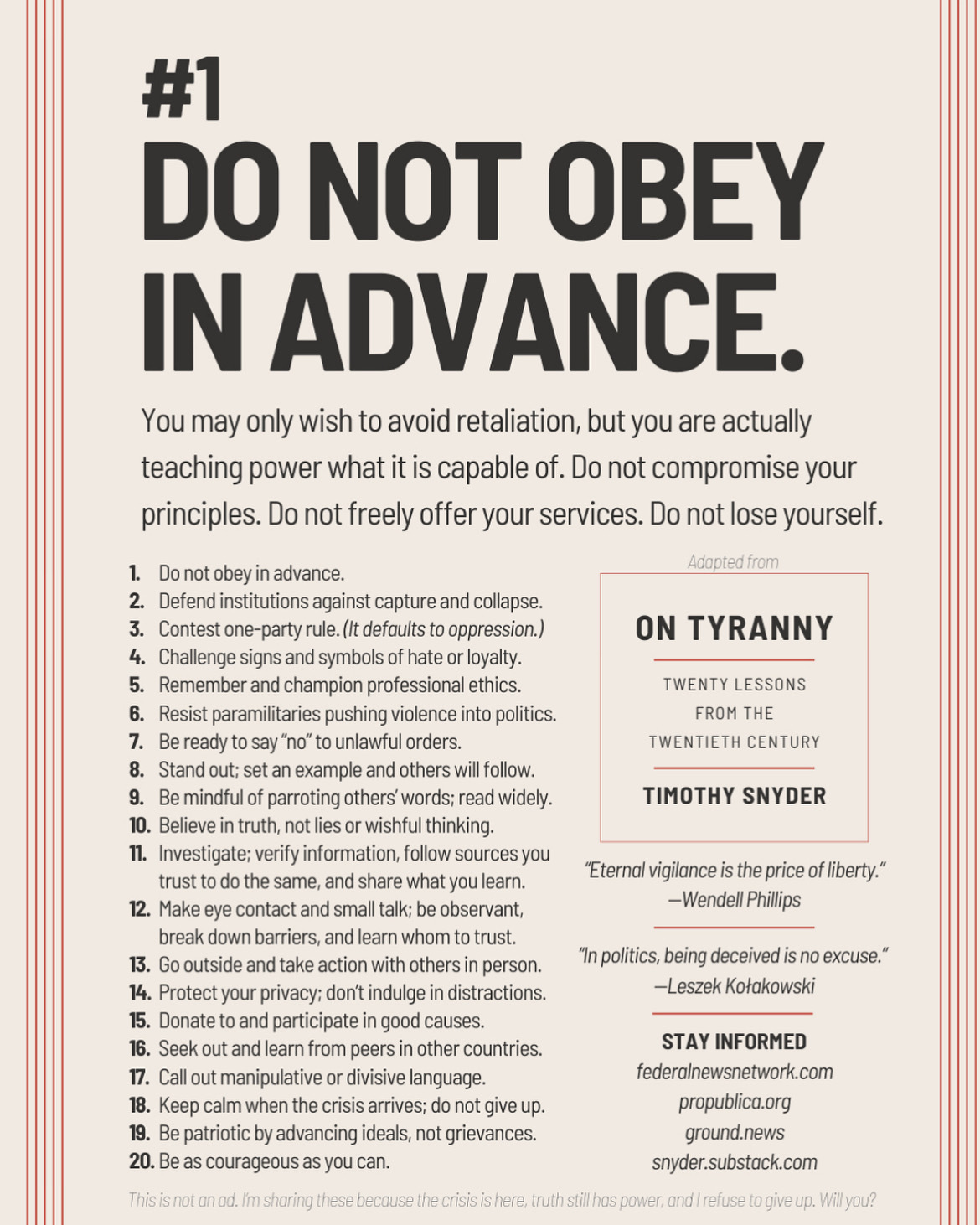
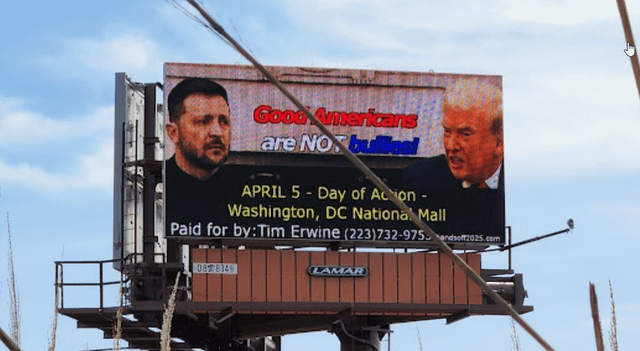
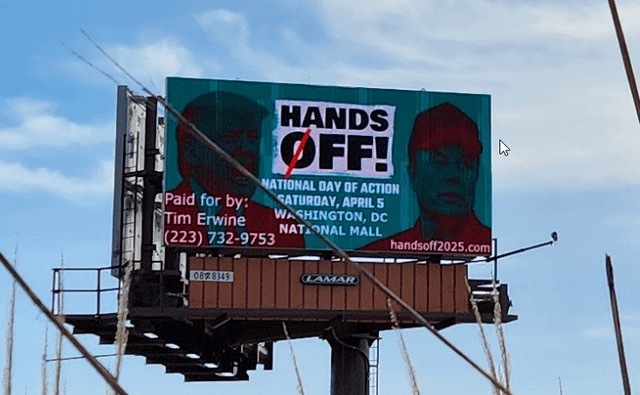









Damn he either had it taken down or he took it down himself.
edit: I found another video of his that is very similar to the one that was taken down. Maybe this’ll work? At the very least, you can see his YT and other videos. QuadzillaHikes